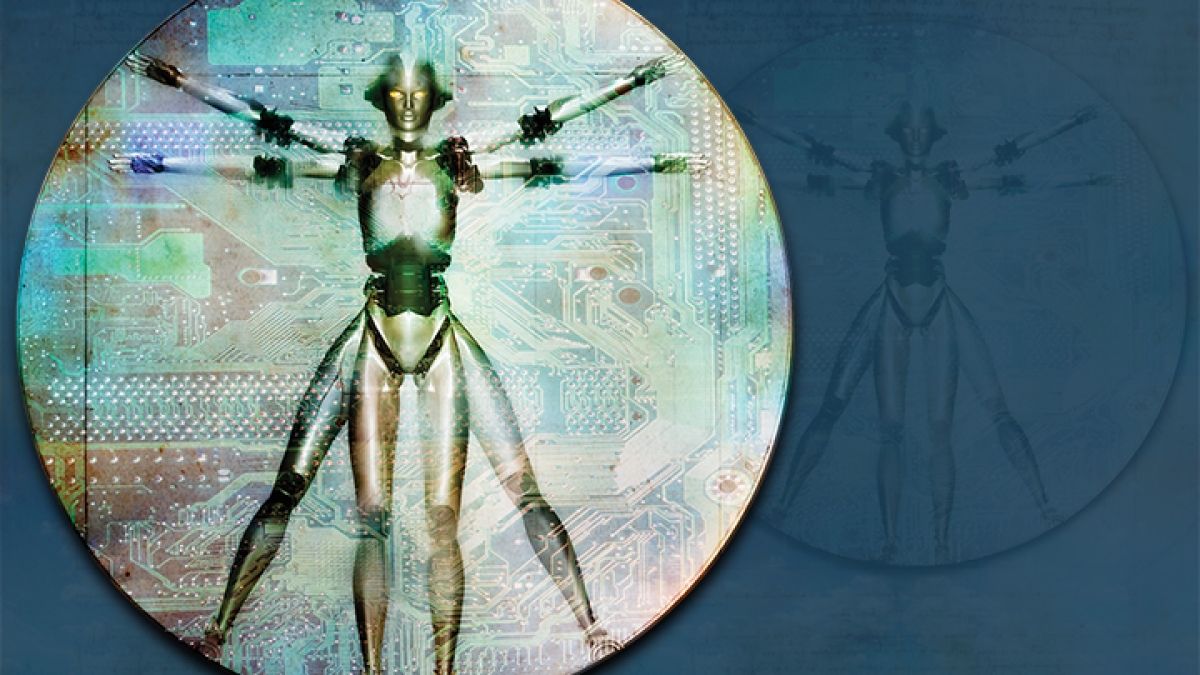ASU receives grant to study transhumanism, religion, innovation

Arizona State University will reinforce its position at the forefront of scholarship on transhumanism through a new multidimensional two-year research project focused on the relationship between transhumanism, religion and technological innovation.
The John Templeton Foundation is supporting the project with a $200,000 grant awarded to ASU's Center for the Study of Religion and Conflict through the Historical Society at Boston University.
Transhumanism is a movement that promotes advanced technology for the physical, intellectual, emotional and spiritual enhancement of the human species. Though the movement claims to be secular, faculty involved in the newly funded project at ASU contend that it can be understood as a unique hybrid of religious and secular ideas.
“Many transhumanists speak dismissively about traditional religions and ridicule persons of faith as ‘weak-minded,’” says Hava Tirosh-Samuelson, a history professor at ASU and one of the project’s principal investigators. “However, transhumanism shares many elements with traditional religions. The main difference is that traditional believers look to prayer, ritual, meditation and moral discipline for transcendence, whereas the proponents of transhumanism mobilize technology.”
Key goals of the research project are to 1) shed new light on the connection between religion and innovation in the modern world, 2) explore the transformation of traditional Judeo-Christian motifs in the secularist discourse of transhumanism, and 3) offer a critical vantage point from which to assess the significance and cultural impact of transhumanism.
The researchers also will compare how transhumanist visions are translated into distinctive science policies in the United States, the European Union and South Korea. Their aim here is to highlight the link between religion, economics, governance and innovation.
The project encompasses four case studies, an interdisciplinary faculty seminar, an international research symposium in Germany and a series of lectures. Ben Hurlbut, an assistant professor in ASU’s School of Life Sciences, joins Tirosh-Samuelson as co-director and co-principal investigator of the project. The project also involves scholars from Harvard, New York University, the University of California-San Diego and Hanyang University in South Korea.
In addition to publishing their findings in scholarly journals, researchers will produce essays for a wider public audience. The December 2012 issue of “Zygon: The Journal of Religion and Science” will feature several articles from an ASU workshop held on this topic last spring, and editors from Slate Magazine and The New Atlantis, a journal of technology and society, have both expressed interest in the project.
Titled “The Transhumanist Imagination: Innovation, Secularization and Eschatology,” the research project will be overseen by ASU’s Center for the Study of Religion and Conflict, an interdisciplinary research center in the College of Liberal Arts and Sciences that examines the role of religion as a driving force in human affairs.
For more information, see transhumanistimagination.csrc.asu.edu.
Story by Barby Grant